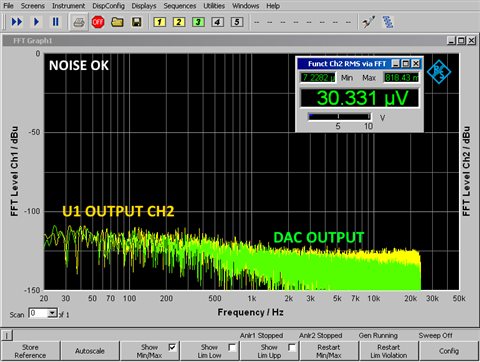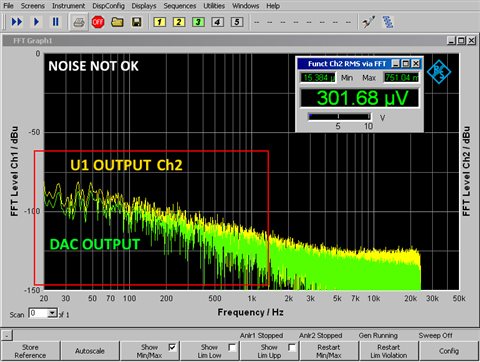Other Parts Discussed in Thread: PCM4104, LP2985
Hello support team,
in our application we use LP2985A-50 as power supply regulator for the analog section of an audio DAC (PCM4104). On some board of our mass production we encountered an issue with the output noise of the DAC and, after some investigations, we conduct the origin at the regulator LP2985: some devices exibith an higher 1/f noise that extends up to the 1kHz band and thsu the noise floor exceed our audio specification.
In the LP2985 datasheet is stated the noise is 30uVrms (300Hz - 50kHz) typical: what you can say about the maximum noise that we can expect in the same condition?
We found that increasing the capacitor at the bypass pin up to 100nF, instead of the maximum recommended of 10nF, we can reduce the ouput noise. Is this a possible and reliable solution or we must not exceed the 10nF as reported in the datasheet?
Thank you in advance for the support,
Best Regards.
Marco.



